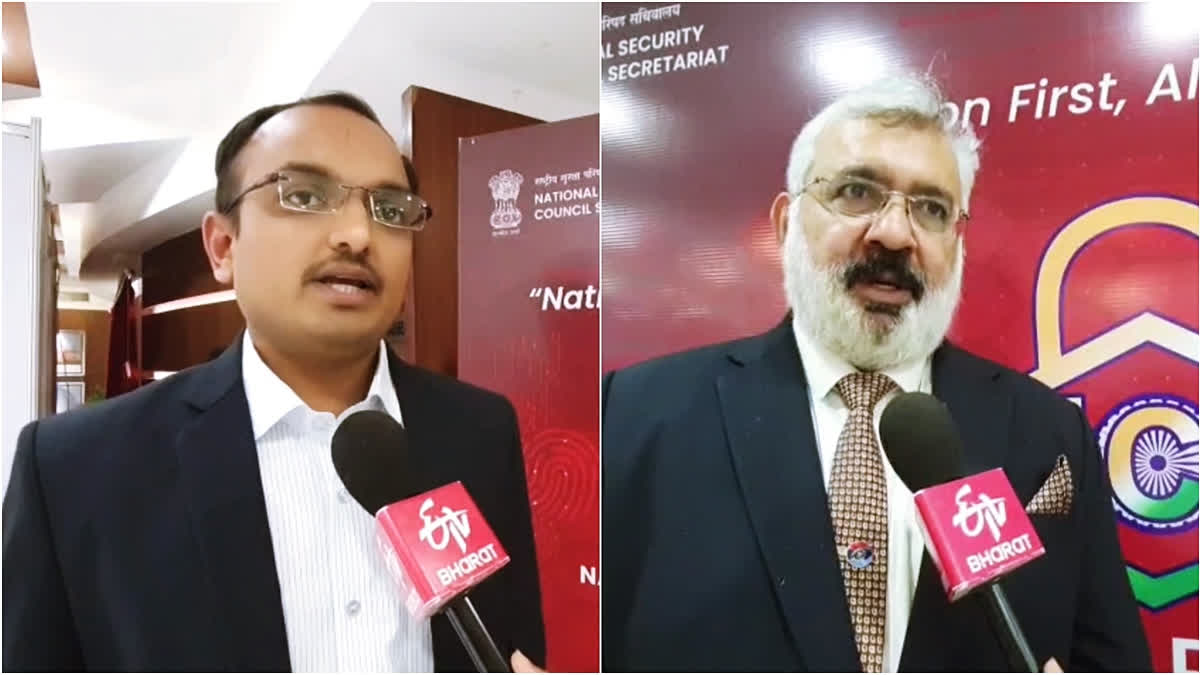New Delhi: As India continues to expand its digital infrastructure, the need for robust cybersecurity measures has never been more critical.
Colonel Nidhish Bhatnagar, Chief Mentor at the School of Information Technology, Artificial Intelligence & Cybersecurity, emphasised the urgency of securing the nation’s digital platforms in his address during the Bharat National Cybersecurity Exercise (Bharat NCX) 2024.
“Cybersecurity is no longer just a concern for a few; it is an issue that affects every citizen in India and, indeed, the global population,” Bhatnagar said. With India’s large-scale digital proliferation, the government has taken significant steps to safeguard its citizens and critical infrastructure.
Bhatnagar explained that India’s growing digital footprint, thanks to government initiatives like Digital India, has made it one of the most digitally connected nations. “With 1.4 billion people and digital services reaching even the most remote villages, the exposure to cyber threats has increased exponentially. However, the government’s efforts have positioned India among the top 10 cyber-resilient nations globally, which is a remarkable achievement,” he said.
The national critical information infrastructure protection centers established by the government play a pivotal role in securing essential services like power grids, healthcare systems, and financial networks.
Echoing Bhatnagar's sentiments about the evolving nature of cyber threats, Dr Jatin Patel, Director of Rashtriya Raksha University, Gujarat, discussed the importance of strategic-level exercises to mitigate these threats, particularly in critical sectors such as energy, transportation, and healthcare. “The main goal behind this conclave is to ensure that strategic decisions are made to protect India’s critical infrastructure from cyber-attacks. We focus on live cyber threat exercises that simulate real-world attacks and prepare our leaders to respond effectively,” he said.
Dr Patel also noted that the exercise involved key sectors being trained to handle specific cyber threats. “This includes sectors like power and healthcare, where targeted training helps mitigate cyber risks,” he added. He emphasised that while India has made tremendous progress in cybersecurity, continuous engagement and training are essential to keeping pace with emerging threats.
The Bharat National Cybersecurity Exercise (Bharat NCX) 2024, brought together top experts, government leaders, and cybersecurity professionals to discuss India’s cybersecurity strategy. Organised by the National Security Council Secretariat (NSCS) and Rashtriya Raksha University (RRU), the event showcased India’s commitment to enhancing cybersecurity resilience through innovation and collaboration.
Launch of Key Initiatives
A significant highlight of the event was the launch of the National Cybersecurity Reference Framework (NCRF) and the National Cyber Range 1.0 (NCR-1.0). The NCRF aims to standardise cybersecurity practices across sectors, ensuring that all stakeholders follow best practices to secure critical infrastructure. The NCR-1.0, India’s first indigenously developed cyber range, provides a platform for simulating real-world cyber-attacks and training cybersecurity professionals to handle complex situations.
According to Lt Gen M.U. Nair (Retd.), National Cyber Security Coordinator, who delivered the inaugural address, the success of these initiatives lies in proactive collaboration. “We need multi-sector collaboration to combat evolving cyber threats,” he said. “The NCRF and NCR-1.0 will enhance our preparedness for cyber-attacks and provide critical training to professionals in real-time scenarios.”
The Bharat Cybersecurity Startup Exhibition, which was also part of the event, highlighted the role of India’s growing cybersecurity startup ecosystem. Leading startups showcased their innovative solutions in areas such as threat intelligence, operational technology (OT) security, and advanced analytics, reinforcing India’s entrepreneurial potential in this vital field.
Leveraging Emerging Technologies to Combat Cyber Threats
In his keynote address, T.V. Ravichandran, Deputy National Security Advisor (Technology & Intelligence), stressed the importance of leveraging emerging technologies to tackle the increasingly complex cybersecurity challenges facing India. “The adoption of emerging technologies like artificial intelligence, machine learning, and blockchain will be critical in building resilient cybersecurity frameworks,” Ravichandran said.
He further emphasised that these technologies could play a pivotal role in safeguarding national security by enhancing the ability to detect and mitigate cyber threats before they escalate. “Our goal is to create an environment where cybersecurity is integrated into every facet of our critical infrastructure,” Ravichandran added.
National Cybersecurity Resilience: A Long-Term Vision
The Bharat NCX 2024 also featured discussions on the long-term vision for India’s cybersecurity strategy. Lt Gen Nair highlighted that while India has made significant strides in strengthening its cyber defences, the evolving nature of cyber threats requires continuous updates to both strategy and technology. “Cybersecurity is a dynamic challenge that evolves daily, and our ability to adapt is key to ensuring the security of India’s digital infrastructure,” he noted.
According to Dr. Patel, India must continue to foster an environment where cybersecurity is not just a technical issue but a national priority that requires constant vigilance, collaboration, and adaptation.
As India’s digital footprint continues to grow, the need for a robust and forward-looking cybersecurity framework will only increase. The launch of initiatives like the NCRF and NCR-1.0, alongside India’s growing cybersecurity startup ecosystem, underscores the nation’s commitment to enhancing its resilience against cyber threats.
By fostering collaboration across sectors and leveraging cutting-edge technologies, India is well-positioned to become a global leader in cybersecurity resilience, securing its digital future for generations to come.
Read more



